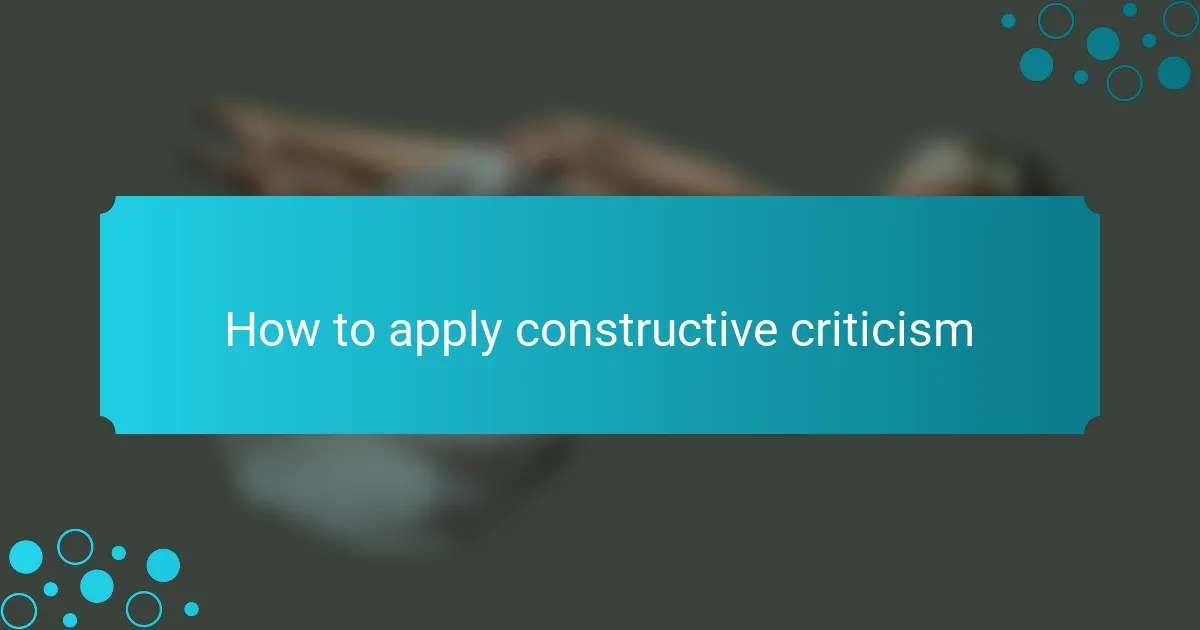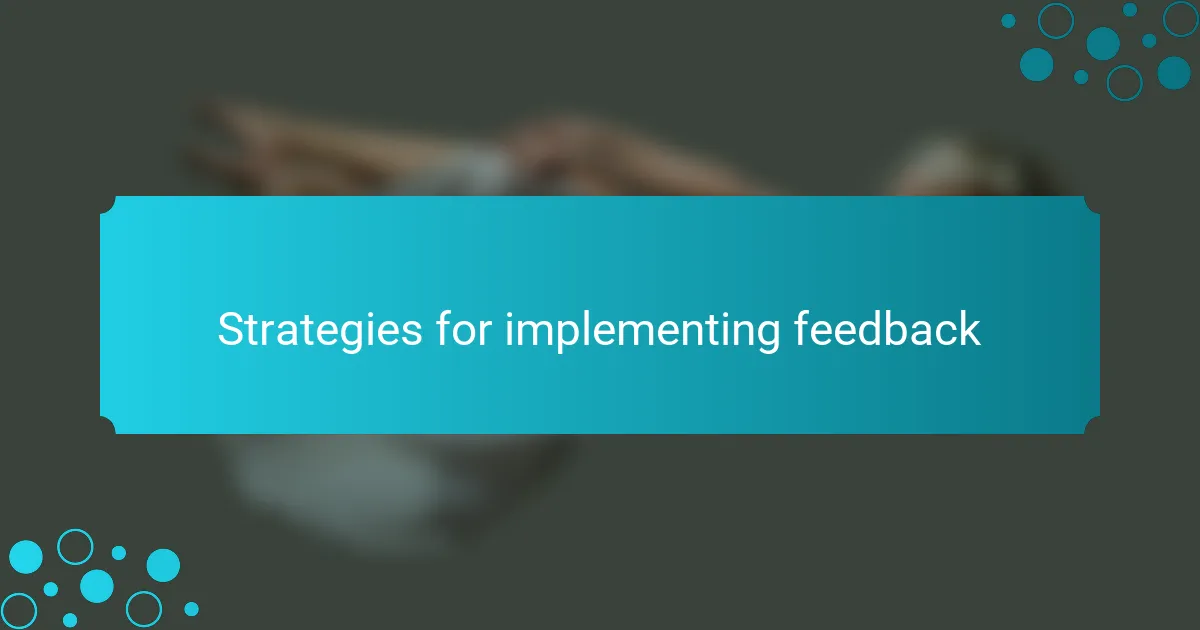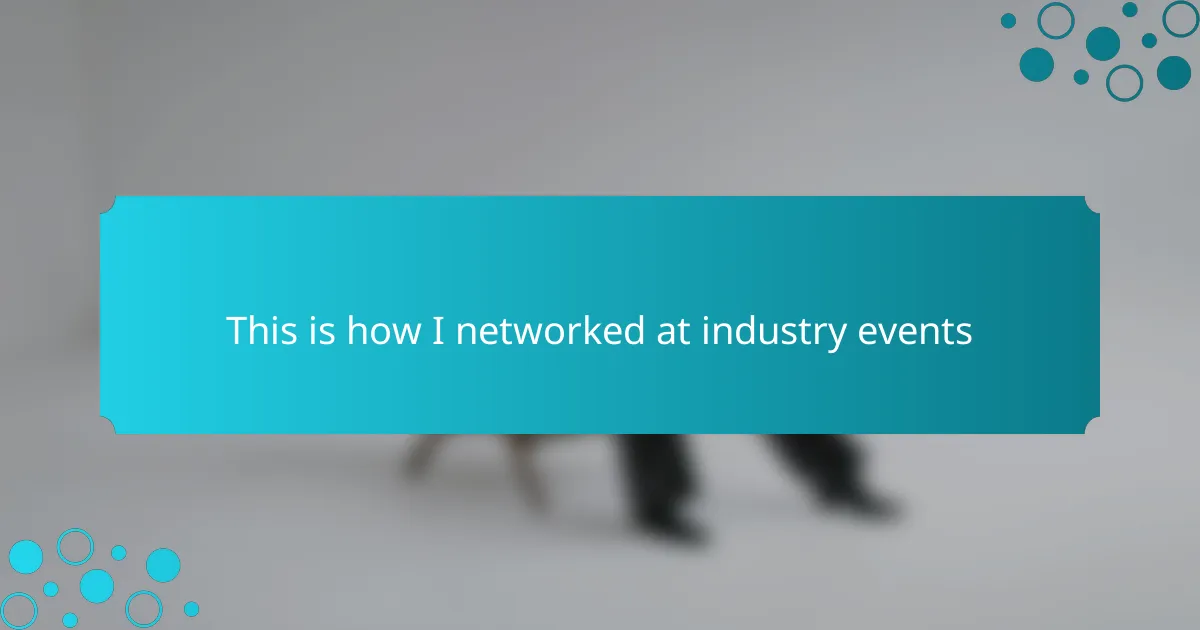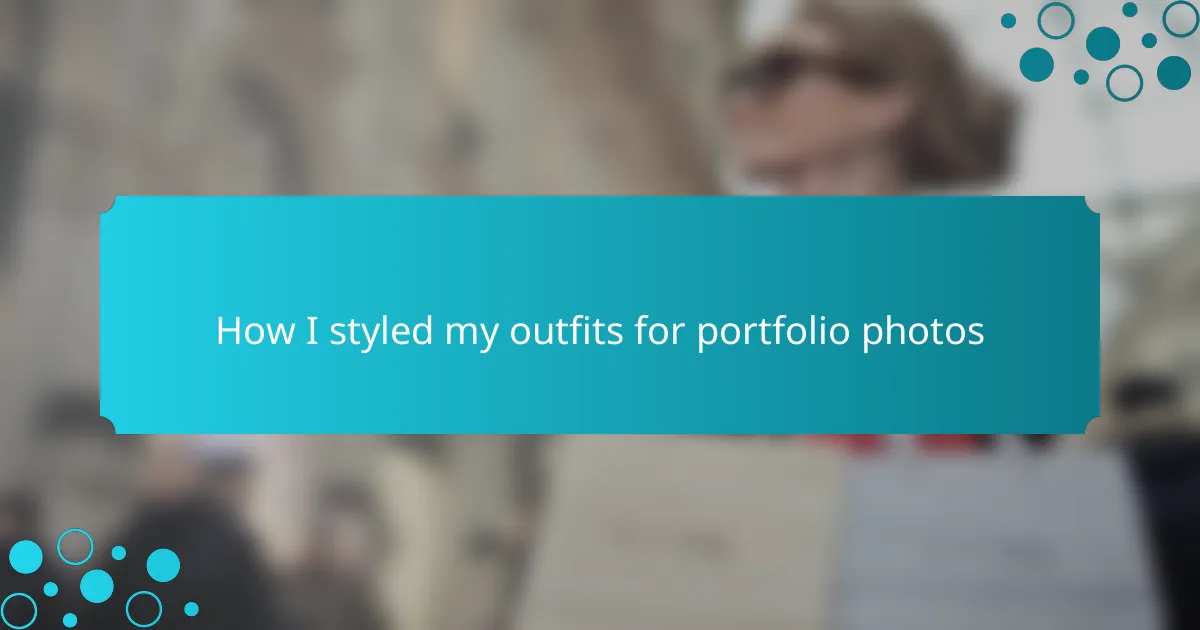Key takeaways
- Feedback is essential for growth in modeling, offering constructive criticism that fuels skill improvement and confidence.
- Mentorship provides personalized guidance, helping to navigate industry complexities and promoting individual style.
- Different types of feedback (technical, emotional, industry-related) aid in honing specific skills and adapting to market trends.
- Implementing feedback effectively involves documenting insights, setting achievable goals, and regularly reflecting on progress.

Understanding feedback in modeling
Feedback is a crucial element in the journey of any model. For me, it often felt like a lifeline, guiding me through the intricate maze of modeling. I vividly remember a time when a mentor told me, “You have to own your look.” It was a turning point for me, highlighting the importance of confidence in this industry.
Understanding feedback is not just about hearing what you did well or where you can improve; it’s about growth. Constructive criticism from mentors can sometimes sting, but it often leads to significant breakthroughs. I’ve learned to see feedback as an opportunity rather than an obstacle, which has helped me evolve my skills continuously.
Here are some key points to keep in mind when receiving feedback in modeling:
- Listen actively: Pay attention to what is being said and how it relates to your performance.
- Be open-minded: Even if feedback feels harsh, it can provide insights into industry expectations.
- Ask questions: Don’t hesitate to seek clarification on points that seem unclear or difficult.
- Reflect on feedback: Take time to analyze how you can implement changes in your work.
- Celebrate progress: Acknowledge improvements, no matter how small, to stay motivated on your path.

Importance of mentor guidance
Mentorship in the fashion and beauty modeling industry is absolutely crucial. From my experience, having a mentor can provide invaluable insights that you simply can’t find in textbooks or online courses. Mentors offer personalized guidance that can help you navigate complex situations, whether it’s understanding industry trends or perfecting your runway walk.
I’ve personally benefited from mentor feedback when it came to building my confidence in front of the camera. Their constructive criticism not only highlighted areas for improvement but also reinforced my strengths, which encouraged me to embrace my unique style. This dual approach helps foster growth while maintaining a sense of individuality, something that’s essential in the world of modeling.
Feeling lost at times is common in this industry, but with a mentor, those feelings can transform into clarity and direction. Their expertise often illuminates paths I never considered, pushing me toward opportunities that ultimately shape my career.
| Mentor Guidance | Self-Guided Learning |
|---|---|
| Personalized Feedback | General Advice |
| Industry Connections | Limited Networking |
| Emotional Support | Self-Motivation Required |

Types of feedback in fashion
Feedback in fashion can come in various forms, each serving a unique purpose in a model’s development. For example, I’ve encountered technical feedback focused on my posture or [censured] expressions during shoots. This kind of feedback is essential because it hones specific skills that can dramatically affect the final image.
Then there’s emotional feedback, which often reflects how I present my personality on the runway or in front of the camera. I remember a mentor once told me, “Your energy is what captures attention.” This kind of insight helped me connect better with the audience and my fellow models, highlighting how important it is to embody the spirit of a shoot or show.
Finally, there’s industry feedback that encompasses trends and market expectations. I’ve found this type to be particularly enlightening, especially when it comes to understanding what clients or agencies look for. What works today might not work tomorrow, and adapting to these shifts can truly set you apart in the competitive world of fashion. Reflecting on these different types of feedback has been key to thriving amidst constant changes.

How to apply constructive criticism
Feedback from mentors can be a game changer in the fashion and beauty modeling industry. When I first started modeling, I received feedback that felt tough to absorb. However, I learned that constructive criticism isn’t just about pointing out flaws; it’s about highlighting areas for growth and embracing the journey of improvement.
Applying feedback effectively requires a thoughtful approach. I found it helpful to create a space where my mentors’ insights could thrive. Here’s how you can make the most of their advice:
- Listen actively: Take in the feedback without defensiveness. This shows respect and a desire to improve.
- Reflect: Give yourself time to think about the criticism and how it can contribute to your development.
- Ask for clarification: If something isn’t clear, don’t hesitate to ask for specific examples.
- Create an action plan: Identify tangible steps you can take in response to the feedback.
- Celebrate progress: Acknowledge the improvements you make along the way, no matter how small.

Personal experiences with mentor feedback
Receiving feedback from mentors in the fashion and beauty modeling world has been one of the most enriching experiences of my career. I remember a specific moment when a mentor pointed out how I could enhance my poses to better express emotion in my shoots. That insight didn’t just change my modeling technique; it shifted how I viewed self-expression as a whole.
It’s important to embrace feedback, even when it feels tough. Each piece of advice is an opportunity for growth. Here are some insights I’ve gathered from my experiences with mentor feedback:
- Constructive criticism can be a game changer; it opens doors to improvement.
- Mentors often highlight strengths you might not see in yourself.
- Emotional resilience develops through accepting and learning from critique.
- Regular feedback fosters a culture of continuous learning, benefiting my overall career trajectory.
- The relationship with a mentor can enhance your confidence when you realize they genuinely want you to succeed.

Strategies for implementing feedback
When receiving feedback from mentors, it’s crucial to create a plan that actively integrates their insights into your work. I remember a time when a mentor advised me to focus more on my posing. At first, I felt disheartened, but I realized this was an opportunity to grow. I made a list of poses to practice, and each week, I would record my progress, which not only improved my skills but also boosted my confidence.
To effectively implement feedback, consider these strategies:
- Document Feedback: Keep a dedicated journal where you write down all feedback received. This allows you to refer back to it and track your improvements over time.
- Set Specific Goals: Break down the feedback into manageable parts. Define clear, achievable goals to avoid feeling overwhelmed.
- Practice Regularly: Incorporate feedback into your routine by dedicating specific practice sessions to work on the areas highlighted by your mentor.
- Seek Clarity: Don’t hesitate to ask your mentor for clarification on their feedback. Understanding their perspective can lead to more effective implementation.
- Reflect and Adjust: After applying the feedback, take time to reflect on your performance. Adjust your approach based on what worked and what didn’t to refine your skills further.

Measuring growth from mentor insights
Receiving feedback from mentors is like having a mirror that reflects my strengths and areas for improvement. I remember a particularly insightful conversation with a mentor who pointed out the difference between simply following trends and truly understanding my unique style. This moment shifted my perspective and opened doors to a profound personal evolution in my modeling journey, making me more confident in expressing who I am through fashion.
Growth from mentor insights can be measured in various ways:
- Enhanced self-awareness: Understanding my strengths and weaknesses helps me grow personally and professionally.
- Skill development: Constructive feedback sharpens my modeling technique and enhances my emotional connection to the craft.
- Confidence boost: Applying mentors’ critiques leads to a stronger sense of self, allowing me to walk the runway with authenticity.
- Networking opportunities: Mentors often connect me with industry professionals, creating pathways I hadn’t previously considered.
- Creative exploration: Encouragement to push boundaries fosters innovative ideas and experimentation in my style.



